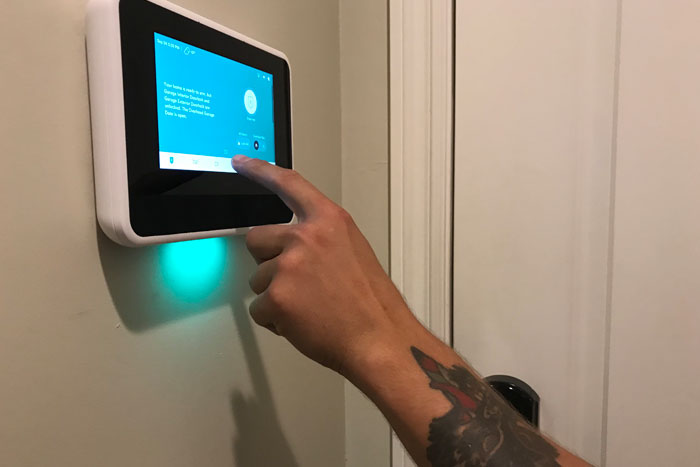
Different Ways Social Media can get you Into Legal Trouble
Social media is supposed to be a fun way to stay connected to your family and friends, and for the most part, that’s exactly what it is. However, as some people have found out, there are a few different ways that social media can cause you to get into some legal trouble.
Getting a Too Personal with a Follower
Many people make friend via social media platforms and these friendships become long lasting and healthy. The problem is that it’s easy to cross the line on social media, until what you thought was an honest attempt to get to know someone results in stalking and harassment charges.
Online social media is a massive problem. This occurs when you start to become too invested in another person’s life and start forcing yourself into their DMs, become aggressive with the comments you leave on the other person’s posts can make them uncomfortable to the point that they will file charges.
Posting About Illegal Activity
A surprising number of people inadvertently attract police attention by posting about crimes they’ve been involved in. Some simply mention that they were at the scene of a crime. Some people will post images of stolen products. There have even been cases where people were charged and convicted of crimes because they posted detailed information about the crime and their involvement on their social media case.
If you have been involved with a crime or even in activity that seems suspicious, it’s in your best interest to keep the information off of your social media platforms. You don’t want to make it easy for the police to secure an arrest warrant.
The best way to stay out of legal trouble when you’re updating your social media accounts is making sure that you take a few minutes and consider each post. Is it something that will attract the attention of the police, could violate a copyright law, or make it appear that you have a questionable personality.
Posting Images That Aren’t Yours Without the Owner’s Permission
This is one that isn’t discussed as much as it should be. While you may not seem the harm in posting a picture you either found while surfing the ‘net or a sample from a photoshoot you recently had with a photographer, doing so is actually copyright infringement. If the photo’s actual owner is upset enough, they could file charges. This has happened a few times to large companies who posted photos they didn’t actually own. In most cases, the photo’s owner approached the company and asked for compensation.

How to Protect Yourself from a Break-In in California
The first thing you need to do is make sure you’re in the habit of really locking up your home, both while you’re away and while in residence. This doesn’t just mean bolting the front door. Go through your house and make sure all the doors that lead to the exterior are locked. Next, do the same with your windows. This is also an excellent opportunity to check the quality of your locks. Make sure that they are in good repair and that they actually keep the door and window locked.
Don’t Be Ostentatious
Don’t make your home look like an appealing risk to robbers. This means you shouldn’t leave your expensive toys lying in the driveway. You also shouldn’t brag about all the valuables you have in your home. Living a quiet life and keeping all of your treasures tucked away might not seem like fun, but it will keep you and your personal property safe.
Be Smart with Your Spare Key
The best thing you can do to keep your home safe is to fit your door with a keypad and routinely change the code, but if you still use a key to open your doors, don’t leave a spare key tucked in a flowerpot or under your welcome mat. In fact, don’t leave the key anywhere outside where it could be found by a would-be thief. Keep your key on your person or tucked in a safe place in your car.
Burglar Proof Your Front Yard
Burglars are attracted to homes that provide a great deal of natural coverage or places where they can hide whenever someone drives past. Removing hedges, shrubs, sheds, and trees that are near your home will deter them. You should also set up a few motion-activated spotlights, yes, any passing wildlife will activate the lights, but they will also cause a burglar to look for a different place to rob.
The best way to make sure your home remains safe, especially while you are away, is to be discreet about what you share on social media. Don’t talk about your vacations and other trips until after you’re home. The last thing you want is to broadcast the fact that your home is unprotected.

Understanding How Bail Works With Absolute Bail Bonds
We understand how bail can be a stressful and confusing situation. Let us reduce your stress as our professional and fully licensed bail bondsmen walk you through the bail bond process, answering all your questions.
The bail bond process is quite simple. Of course, there is going to be its share of legal print, but overall, it’s very understandable.
Question: What is a bail bond for?
Answer: A bail bond is a written promise that the defendant will pay a fixed amount of money for his or her release from jail. The fixed amount will be 10% of the full bail amount.
Question: Does the full fixed amount need to be paid upfront before the defendant can be released?
Answer: No. The bail bond company will calculate a workable payment plan the defendant will be released from jail and following that, payments on the bail bond will continue to be made.
Question: What are the contingencies?
Answer: The defendant is required to show up for all court dates. If the court has additional mandates, like attending counseling, staying away from someone, or someplace, and not leaving the state, for example, the defendant will need to abide by these as well.
Question: What if they don’t?
Answer: The bail bond will be revoked, and the defendant will be taken back into custody. In addition, the full bail amount may need to be paid off.
Question: Is the money refundable at the end of the trial, if my loved one obeyed all his or her orders?
Answer: No. Think of the fixed price for the bail bond as a fee for the bail bond services. But, most people use bail bonds to bail out of jail because, in the long-term view, it is more affordable for them.

Teen Marijuana Use in California
Recreational marijuana is legal in California. However, that doesn’t mean that teens are allowed to partake in marijuana.
At this point, it’s legal for anyone who is over the age of 21, to grow, use, and carry marijuana. That age limit is important. If a person is 21 and enjoying some marijuana, they’re fine. The same isn’t true if their 19-year-old friend is doing the same thing.
The one exception to marijuana use in teenagers is if that medical marijuana can be prescribed to anyone who is at least 18 years old. That means that if an 18-, 19-, or 20-year-old has a prescription from a legit doctor, they can legally use marijuana. If a teen is prescribed medical marijuana, they must adhere to the rules laid out in the prescription. The slightest deviation could result in them facing serious legal repercussions.
Teens who are caught illegally in the possession of marijuana will face the same legal consequences they’d face if they were caught with alcohol. As long as the teen is merely in the possession of the marijuana but not using it, they will be charged with an infraction. The consequences of this particular marijuana infraction include a fine, mandatory drug education, and community service.
Teens who are caught operating a car after they have been illegally using marijuana will face the same consequences that they would had they been illegally drinking. In addition to fines and drug counseling, they will face license suspension. The more times they are caught driving while under the influence of marijuana, the more severe the legal consequences become.
At the end of the day, it’s important to make sure teenagers understand that it’s really in their best interest to wait until they are 21 before they experiment with marijuana. While they still have to be careful and make sure they don’t take so much that their ability to drive is impaired, by waiting until they’re legally able to do so, they don’t have to worry about getting into trouble for simply having marijuana in their pockets or tucked into a purse.

Tips for a Peaceful Holiday Family Gathering
This is the season when many of us are getting together with both our immediate and extended family to celebrate the holidays. While this is supposed to be a fun time that is full of joy and shared memories, all of us are painfully aware that whenever a family gathers, there’s always a chance that an argument will break out.
While you might not be able to completely prevent family discourse over the holidays, there are some things you can do that will help you maintain the peace during gatherings.
Know Your Limits
Before getting together with your family for the holidays, take a few moments to access your mental and emotional health. Are you in a good state of mind or do you feel like it wouldn’t take much to push you over the edge? Take another moment to determine how much time you can spend with your family before you find your emotions starting to unravel. Commit yourself to only spending that amount of time at the gathering before you make your excuses and leave. Don’t be afraid to leave early if your family becomes too much. It’s far easier to apologize for leaving early than it is to apologize for getting into a massive argument with your siblings.
Don’t Bring Up Old Problems
Treat this family gathering as a blank slate. Old arguments, complaints, and other issues should be pushed aside and allowed to rest. If you have a problem with how a relative has treated you in the past, try to avoid that particular relative at this particular gathering. Once the holidays are over, you can always call them and try to resolve the issue.
Evaluate Your Attitude
You may not be able to do much about your cranky uncle or bickering parents, but you can do something about your attitude. Instead of approaching the family gathering with a chip on your shoulder, convince yourself to be tolerant and cheerful. This is one of those fake it until you make it situations, when you’re cheerful, even when you’re forcing yourself to be, you’ll notice others respond positively to you. Before you know it, your good attitude will have shifted the gathering’s entire atmosphere and everyone will be having a good time.

When Does California Permanently Revoke a Driver’s License for DUI?
It’s no secret that if you’re caught driving while under the influence of an illegal amount of drugs or alcohol in California, you’ll not only be arrested and fined but you’ll also be convicted of a misdemeanor and have your driver’s license suspended. In most cases, the hassle of losing their driver’s license and finding alternative means of travel is the worst part of having a DUI conviction. Even for a few months, not being able to drive convinces most drivers to be mindful of how much they imbibe before sliding behind the wheel.
While most people learn their lesson after a single DUI, there are always exceptions. Unfortunately, for one reason or another, some drivers make the same mistake a second time. At this point, many panic about the long-term impact the second conviction will have on their driving privileges and start worrying about just how many DUIs they can have on their record before they permanently lose their California driving privileges.
Anyone who has passed their 21st birthday and is pulled over for suspicion of DUI and has a blood alcohol content (BAC) that is 008% or more will have their driving privileges revoked. The first time this happens, your driver’s license will be suspended for four months. Each time after that initial charge during a ten-year period, the suspension will last a full year.
The situation goes from bad to worse if you refuse to take a BAC or breath test when you’re pulled over by a patrol officer. In this situation, your driver’s license suspension will last for an entire year following your first DUI experience. If this is the second time you’ve been arrested for a DUI offense and refused the test, you’ll be suspended for two full years. The third and subsequent time this happens, your driver’s license will be suspended for a full three years.
Suppose you’re charged with a DUI while you’re currently on probation for a DUI offense. In that case, your driver’s license will be suspended for an additional year in addition to the traditional suspension period. You will also face the serious legal consequences of driving on a suspended license and probably some other traffic violations as well.
The best way to ensure you don’t lose your driving privileges is to be smart and always have a designated driver or ride-share plan when you go out for a night of fun and drinking.

How to Report a Missing Person in California
There is nothing funny about having a friend or family member fail to be where you expect them to be. The problem becomes even worse when you are unable to contact them via a cell phone call.
Many people who are in this situation mistakenly believe that their loved one must be missing for a full 24 hours before they should contact the police. The truth is that you can contact the authorities and set about filing a missing person report as soon as you suspect that something has gone wrong. If the police tell you that you must wait, they’re wrong. You’re legally allowed to file the missing report right away.
Not only are you legally allowed to file the missing person report right away, but doing so is a good idea. The sooner you report your loved one as missing, the sooner the police can be on the outlook for them. It can even be the thing that prompts the police to do a wellness check which could reveal that your loved one isn’t missing, but simply sitting at home ignoring your calls.
If you’re reporting a minor as missing, the police will start looking for them right away. If you’re reporting someone who isn’t a minor or considered an at-risk person as missing and remains at large for more than 72 hours, the police contact the FBI’s National Crime Information Center (NCIC) and have your loved one officially listed as an endangered adult. This is a crucial step as it gets your loved one’s information into a national database, making it easier for different law enforcement groups to report a sighting or to take an interest in the case.
Don’t assume that just because you’ve reported a loved one as missing that the police will bring your loved one directly to you once they’ve been found. If your loved one is over 21 years old and doesn’t have a history of mental health problems and hasn’t committed a crime, there is little the police can legally do once they’ve been located.
While the police can’t force your loved one to return and they can’t provide you details about where your loved one is currently located, it’s highly likely that they will let you know that you’re loved one is safe and appears to be of sound mind and spirit.

How to Clear your Criminal Record in California
Having a criminal record adversely impacts your life. Depending on the severity of the convictions, your criminal record can make it difficult for you to find housing, establish relationships, and secure some jobs. The fact that you’re living in the technological age where anyone with internet access has the ability to locate your criminal history makes your criminal record even more impactful than it would have been twenty or thirty years ago.
The good news is that with some charges in California, it’s possible to clean up your criminal history and have the charges removed from your history, therefore lessening the negative impact your poor choices have on your future.
The first thing you need to understand is that while it’s possible to have some convictions removed from your criminal history, not all types of convictions are removable. The more serious the offenses, the less likely you’ll be able to get them removed.
The second thing you should understand is that while you may be able to remove some of the convictions from your record, there will remain a history of the court case and investigation so it’s possible that someone who is interested enough to really dig deep into your history will find a trace of your criminal activity.
Expungement is the term used to describe the act of cleaning up your criminal history in California. While many minor offenses are eligible for expungement, if your sentence included you spending time in one of the state prisons, it’s unlikely you’ll be able to clear your record.
You also must have successfully completed every single aspect of your sentencing before expungement even becomes a possibility. That could include serving time in a county jail, performing community service, finishing probation, and making restitution.
Once you’ve completed your entire sentence, you can petition the court about getting the charges expunged from your criminal history. It’s important to note that not everyone who files for expungement will have their request granted. However, if the offenses were minor, there’s nothing to show you’re going to be a habitual offender, and you’ve completed your sentence in a timely manner, it’s likely your request will be granted.
The best thing about having your record expunged is that once the process is complete, future employers and landlords won’t find any criminal history when they perform a background check, making them far more likely to accept you for a position on their team or as a tenant.



